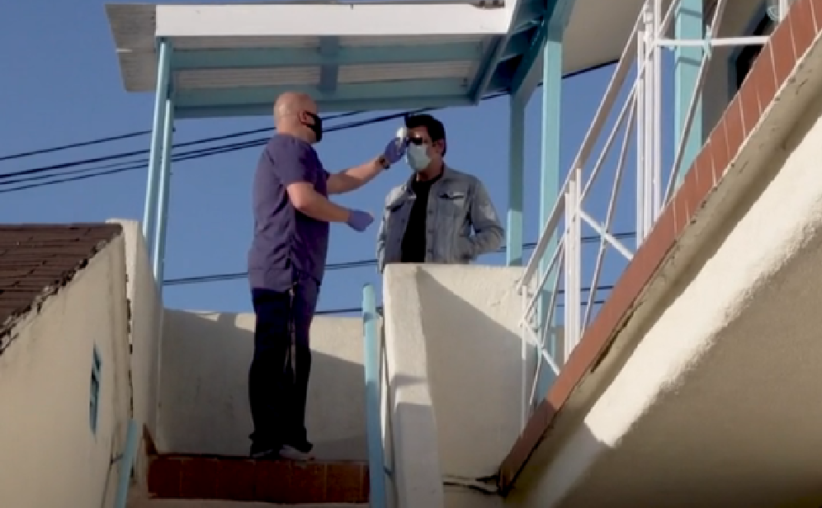Marcelo Montecinos
THE death of the first Chilean doctor, José René Sánchez, due to Covid-19 yesterday was a sad reminder of what medics have to go through on a daily work basis nowadays.
That same night, May 26, police cars and fire fighters sounded their sirens in memory and respect for his work. Many people around Santiago clapped in his honor at the same time. He is only one of many people that work in potentially deadly circumstances. The dangerous Covid-19 virus seems to be hiding around every corner these days.
Gerardo works at the Clinica Davila. He was placed on 24-hour shifts three weeks ago. He gets three days off to recuperate afterwards. The new shifts are for many like him; working in a hospital. The schedules are now common practices in hospitals and clinics due to the pandemic. They are shifts that are meant to better organize potential contagion among hospital workers. The logistics of who worked alongside whom on any specific day make it easier to identify who he was in contact with, and who else would need to be quarantined, in the event of having contracted the virus. Gerardo is 32 so the long shifts don’t bother, nor affect him much, but his father is another story.

Ivan works at a public hospital in Santiago, San Juan de Dios. Public hospitals are known to work their workers harder than in private clinics. Doing 24-hour shifts at the age of 58 is harder for him. He needs the next 3 days off to fully recover afterwards. When he isn’t doing 24-hour shifts, he is doing back-to-back shifts without a day off due to the constant influx of potential Covid patients. Public hospitals have been the first to reach maximum levels, so the work is hectic. He has not had any scares of contagion, but his wife has.
Viviana was sent home from work, Hospital de la Florida, three weeks ago because one of her workmates tested positive for the virus. She had to be in quarantine for 14 days, time in which she had to sleep in a different room from Ivan, and had to keep her distance from him at all times. She is now back at work without incidents. Viviana has two grown children that don’t live with her so her worry was not alarming. Her daughter-in-law does, though.
Sylvana simply cannot be sent home from her place of work, Clinica Medical Home Chile, since she has two young daughters. She keeps her spirits up and prays that she will not get the virus every day she has to go to work.
Living in fear is something new for all hospital workers during this pandemic. Beyond the fear, they have to not only do their duties as a hospital worker; they also have to hold hands and try to not make the victims’ experience a traumatic one.
My hat’s off to them.


